195 papers:
 DATE-2015-BortolottiMBRSB #monitoring #power management
DATE-2015-BortolottiMBRSB #monitoring #power management- An ultra-low power dual-mode ECG monitor for healthcare and wellness (DB, MM, AB, RR, GS, LB), pp. 1611–1616.
 PODS-2015-BarceloPS #approximate #evaluation #performance
PODS-2015-BarceloPS #approximate #evaluation #performance- Efficient Evaluation and Approximation of Well-designed Pattern Trees (PB, RP, SS), pp. 131–144.
 ESOP-2015-FetscherCPHF #automation #generative #random #type system
ESOP-2015-FetscherCPHF #automation #generative #random #type system- Making Random Judgments: Automatically Generating Well-Typed Terms from the Definition of a Type-System (BF, KC, MHP, JH, RBF), pp. 383–405.
 STOC-2015-HalldorssonT #graph #how #question
STOC-2015-HalldorssonT #graph #how #question- How Well Can Graphs Represent Wireless Interference? (MMH, TT), pp. 635–644.
 CSCW-2015-IslamP #network #social
CSCW-2015-IslamP #network #social- Engagement and Well-being on Social Network Sites (AKMNI, SP), pp. 375–382.
 CSCW-2015-Pierson
CSCW-2015-Pierson- Outnumbered but Well-Spoken: Female Commenters in the New York Times (EP), pp. 1201–1213.
 MoDELS-J-2011-Steimann15 #refactoring
MoDELS-J-2011-Steimann15 #refactoring- From well-formedness to meaning preservation: model refactoring for almost free (FS), pp. 307–320.
 MoDELS-J-2011-Steimann15 #refactoring
MoDELS-J-2011-Steimann15 #refactoring- From well-formedness to meaning preservation: model refactoring for almost free (FS), pp. 307–320.
 SAC-2015-LoffRM #predict #social #social media
SAC-2015-LoffRM #predict #social #social media- Predicting well-being with geo-referenced data collected from social media platforms (JL, MR, BM), pp. 1167–1173.
 SAC-2015-LopezR #analysis #metaprogramming
SAC-2015-LopezR #analysis #metaprogramming- Meta-programming with well-typed code analysis (ML, GDR), pp. 2119–2121.
 CSL-2015-Berardi #comprehension #higher-order #induction
CSL-2015-Berardi #comprehension #higher-order #induction- Classical and Intuitionistic Arithmetic with Higher Order Comprehension Coincide on Inductive Well-Foundedness (SB), pp. 343–358.
 TLCA-2015-Pientka0 #recursion
TLCA-2015-Pientka0 #recursion- Well-Founded Recursion over Contextual Objects (BP, AA), pp. 273–287.
 DRR-2014-LundRW #fault #how #multi #question
DRR-2014-LundRW #fault #how #multi #question- How well does multiple OCR error correction generalize? (WBL, EKR, DDW), p. ?–13.
 PODS-2014-PichlerS #equivalence
PODS-2014-PichlerS #equivalence- Containment and equivalence of well-designed SPARQL (RP, SS), pp. 39–50.
 STOC-2014-LiNW #algorithm #linear #sketching #streaming
STOC-2014-LiNW #algorithm #linear #sketching #streaming- Turnstile streaming algorithms might as well be linear sketches (YL, HLN, DPW), pp. 174–183.
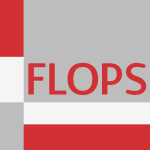 FLOPS-2014-CaiO #automaton
FLOPS-2014-CaiO #automaton- Well-Structured Pushdown System: Case of Dense Timed Pushdown Automata (XC, MO), pp. 336–352.
 DLT-2014-ReynierT #automaton #transducer
DLT-2014-ReynierT #automaton #transducer- Visibly Pushdown Transducers with Well-Nested Outputs (PAR, JMT), pp. 129–141.
 FM-2014-HayesM #algebra #invariant #realtime
FM-2014-HayesM #algebra #invariant #realtime- Invariants, Well-Founded Statements and Real-Time Program Algebra (IJH, LM), pp. 318–334.
 SEFM-2014-MotaFDW #agile #model checking #prototype #semantics
SEFM-2014-MotaFDW #agile #model checking #prototype #semantics- Rapid Prototyping of a Semantically Well Founded Circus Model Checker (AM, AF, AD, JW), pp. 235–249.
 CHI-2014-BrownAG #design #health #self #women
CHI-2014-BrownAG #design #health #self #women- Reflection through design: immigrant women’s self-reflection on managing health and wellness (DB, VA, REG), pp. 1605–1614.
 CSCW-2014-RatanH #design #game studies
CSCW-2014-RatanH #design #game studies- Playing well with virtual classmates: relating avatar design to group satisfaction (RR, BSH), pp. 564–573.
 KR-2014-DeneckerV #induction #principle #revisited #semantics
KR-2014-DeneckerV #induction #principle #revisited #semantics- The Well-Founded Semantics Is the Principle of Inductive Definition, Revisited (MD, JV).
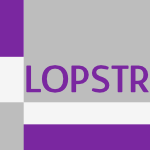 LOPSTR-2014-ChowdhuryLCKY #approximate #case study #logic programming #polynomial #semantics #source code
LOPSTR-2014-ChowdhuryLCKY #approximate #case study #logic programming #polynomial #semantics #source code- Polynomial Approximation to Well-Founded Semantics for Logic Programs with Generalized Atoms: Case Studies (MSC, FL, WC, AK, JHY), pp. 279–296.
 PPoPP-2014-HerlihyL #locality
PPoPP-2014-HerlihyL #locality- Well-structured futures and cache locality (MH, ZL), pp. 155–166.
 ICLP-J-2014-TachmazidisAF #big data #performance #semantics
ICLP-J-2014-TachmazidisAF #big data #performance #semantics- Efficient Computation of the Well-Founded Semantics over Big Data (IT, GA, WF), pp. 445–459.
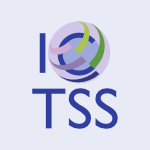 ICTSS-2014-Schmidberger #metric
ICTSS-2014-Schmidberger #metric- Well-Defined Coverage Metrics for the Glass Box Test (RS), pp. 113–128.
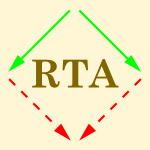 RTA-TLCA-2014-BerardiS #theorem
RTA-TLCA-2014-BerardiS #theorem- Ramsey Theorem as an Intuitionistic Property of Well Founded Relations (SB, SS), pp. 93–107.
 CASE-2013-WilsonM #design #estimation #parametricity
CASE-2013-WilsonM #design #estimation #parametricity- Optimal trajectory design for well-conditioned parameter estimation (ADW, TDM), pp. 13–19.
 PODS-2013-HernichKLG #datalog #ontology #reasoning #semantics
PODS-2013-HernichKLG #datalog #ontology #reasoning #semantics- Well-founded semantics for extended datalog and ontological reasoning (AH, CK, TL, GG), pp. 225–236.
 ESOP-2013-JeanninKS
ESOP-2013-JeanninKS- Language Constructs for Non-Well-Founded Computation (JBJ, DK, AS), pp. 61–80.
 STOC-2013-Ta-Shma #matrix #quantum
STOC-2013-Ta-Shma #matrix #quantum- Inverting well conditioned matrices in quantum logspace (ATS), pp. 881–890.
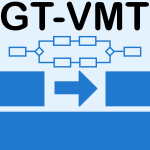 GT-VMT-2013-MantzTL #co-evolution #migration
GT-VMT-2013-MantzTL #co-evolution #migration- Well-formed Model Co-evolution with Customizable Model Migration (FM, GT, YL).
 CHI-2013-IsaacsKWLHW #how
CHI-2013-IsaacsKWLHW #how- Echoes from the past: how technology mediated reflection improves well-being (EI, AK, AW, TL, VH, SW), pp. 1071–1080.
 DHM-SET-2013-BaptistaSVQCD #interactive #using
DHM-SET-2013-BaptistaSVQCD #interactive #using- Using Digital Interactive Television to Promote Healthcare and Wellness Inclusive Services (AB, ÁDS, IV, CQ, MC, MJD), pp. 150–156.
 DUXU-NTE-2013-SannaVBBR #approach #behaviour #design
DUXU-NTE-2013-SannaVBBR #approach #behaviour #design- Engineering AwarenessTM: An e-Service Design Approach for Behavioral Change in Healthcare and Well-Being (AS, SV, SB, IB, AR), pp. 558–567.
 DUXU-NTE-2013-ViciniBRS #behaviour
DUXU-NTE-2013-ViciniBRS #behaviour- Well-Being on the Go: An IoT Vending Machine Service for the Promotion of Healthy Behaviors and Lifestyles (SV, SB, AR, AS), pp. 594–603.
 DUXU-PMT-2013-RaisonS #agile #approach #design
DUXU-PMT-2013-RaisonS #agile #approach #design- Keeping User Centred Design (UCD) Alive and Well in Your Organisation: Taking an Agile Approach (CR, SS), pp. 573–582.
 OCSC-2013-HallCW #approach #community #predict
OCSC-2013-HallCW #approach #community #predict- Well-Being’s Predictive Value — A Gamified Approach to Managing Smart Communities (MH, SC, CW), pp. 13–22.
 EDOC-2013-AzevedoIASPG #modelling #ontology
EDOC-2013-AzevedoIASPG #modelling #ontology- An Ontology-Based Well-Founded Proposal for Modeling Resources and Capabilities in ArchiMate (CLBA, MEI, JPAA, MvS, LFP, GG), pp. 39–48.
 ICML-c3-2013-ZhuLM #algorithm #clustering
ICML-c3-2013-ZhuLM #algorithm #clustering- A Local Algorithm for Finding Well-Connected Clusters (ZAZ, SL, VSM), pp. 396–404.
 MoDELS-2013-FaunesCBSC #automation #metamodelling
MoDELS-2013-FaunesCBSC #automation #metamodelling- Automatically Searching for Metamodel Well-Formedness Rules in Examples and Counter-Examples (MF, JJC, BB, HAS, BC), pp. 187–202.
 MoDELS-2013-SemerathHV #constraints #domain-specific language #graph #query #validation
MoDELS-2013-SemerathHV #constraints #domain-specific language #graph #query #validation- Validation of Derived Features and Well-Formedness Constraints in DSLs — By Mapping Graph Queries to an SMT-Solver (OS, ÁH, DV), pp. 538–554.
 MoDELS-2013-FaunesCBSC #automation #metamodelling
MoDELS-2013-FaunesCBSC #automation #metamodelling- Automatically Searching for Metamodel Well-Formedness Rules in Examples and Counter-Examples (MF, JJC, BB, HAS, BC), pp. 187–202.
 MoDELS-2013-SemerathHV #constraints #domain-specific language #graph #query #validation
MoDELS-2013-SemerathHV #constraints #domain-specific language #graph #query #validation- Validation of Derived Features and Well-Formedness Constraints in DSLs — By Mapping Graph Queries to an SMT-Solver (OS, ÁH, DV), pp. 538–554.
 LICS-2013-BalbianiHT #logic
LICS-2013-BalbianiHT #logic- Dynamic Logic of Propositional Assignments: A Well-Behaved Variant of PDL (PB, AH, NT), pp. 143–152.
 CBSE-2012-KarolBA #attribute grammar #composition #towards
CBSE-2012-KarolBA #attribute grammar #composition #towards- Towards well-formed fragment composition with reference attribute grammars (SK, CB, UA), pp. 109–114.
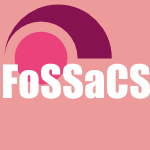 FoSSaCS-2012-AdamekMMS #algebra
FoSSaCS-2012-AdamekMMS #algebra- Well-Pointed Coalgebras (Extended Abstract) (JA, SM, LSM, LS), pp. 89–103.
 PEPM-2012-Lopez-FraguasMR #functional #logic programming
PEPM-2012-Lopez-FraguasMR #functional #logic programming- Well-typed narrowing with extra variables in functional-logic programming (FJLF, EMM, JRH), pp. 83–92.
 SFM-2012-Selic #uml
SFM-2012-Selic #uml- The Less Well Known UML — A Short User Guide (BS), pp. 1–20.
 ICGT-2012-KonigS #graph transformation
ICGT-2012-KonigS #graph transformation- Well-Structured Graph Transformation Systems with Negative Application Conditions (BK, JS), pp. 81–95.
 SLE-2012-KaminskiW #analysis #attribute grammar #composition
SLE-2012-KaminskiW #analysis #attribute grammar #composition- Modular Well-Definedness Analysis for Attribute Grammars (TK, EVW), pp. 352–371.
 ICLP-2012-YouMB #semantics #source code
ICLP-2012-YouMB #semantics #source code- Reconciling Well-Founded Semantics of DL-Programs and Aggregate Programs (JHY, JM, YB), pp. 235–246.
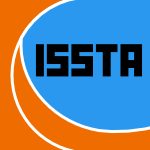 ISSTA-2012-CoughlinCDS #source code #what
ISSTA-2012-CoughlinCDS #source code #what- Measuring enforcement windows with symbolic trace interpretation: what well-behaved programs say (DC, BYEC, AD, JGS), pp. 276–286.
 VMCAI-2012-ZuffereyWH #abstraction
VMCAI-2012-ZuffereyWH #abstraction- Ideal Abstractions for Well-Structured Transition Systems (DZ, TW, TAH), pp. 445–460.
 ASE-2011-HidakaHIKN #bidirectional #framework #model transformation #named
ASE-2011-HidakaHIKN #bidirectional #framework #model transformation #named- GRoundTram: An integrated framework for developing well-behaved bidirectional model transformations (SH, ZH, KI, HK, KN), pp. 480–483.
 CSEET-2011-BromanS #how #question #re-engineering #student
CSEET-2011-BromanS #how #question #re-engineering #student- How can we make software engineering text books well-founded, up-to-date, and accessible to students? (DB, KS), pp. 386–390.
 FoSSaCS-2011-BonnetFHR
FoSSaCS-2011-BonnetFHR- Ordinal Theory for Expressiveness of Well Structured Transition Systems (RB, AF, SH, FRV), pp. 153–167.
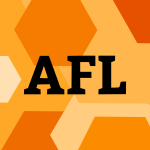 AFL-2011-IvanM #context-free grammar #generative #word
AFL-2011-IvanM #context-free grammar #generative #word- Müller context-free grammars generating well-ordered words (SI, ÁM), pp. 225–240.
 LATA-2011-PolicritiT #finite #set
LATA-2011-PolicritiT #finite #set- Well-Quasi-Ordering Hereditarily Finite Sets (AP, AIT), pp. 440–451.
 CHI-2011-ChenNC #online #recommendation #social
CHI-2011-ChenNC #online #recommendation #social- Speak little and well: recommending conversations in online social streams (JC, RN, EHhC), pp. 217–226.
 HCI-UA-2011-Loiacono-MelloDTP #case study #generative #why
HCI-UA-2011-Loiacono-MelloDTP #case study #generative #why- Why Virtual Job Recruitment Is Not Well Accepted by Generation Y? — A Case Study on Second Life (ETLM, SD, BT, OVP), pp. 245–254.
 ICEIS-J-2011-PereiraBOM #consistency #process #set
ICEIS-J-2011-PereiraBOM #consistency #process #set- A Set of Well-Formedness Rules to Checking the Consistency of the Software Processes Based on SPEM 2.0 (EBP, RMB, TCO, MCM), pp. 284–299.
 KEOD-2011-SeppalaN #analysis #modelling
KEOD-2011-SeppalaN #analysis #modelling- Contextual Analysis and Modeling of Personal Wellness (AS, PN), pp. 202–207.
 PPDP-2011-SchernhammerM #axiom #incremental #recursion #specification
PPDP-2011-SchernhammerM #axiom #incremental #recursion #specification- Incremental checking of well-founded recursive specifications modulo axioms (FS, JM), pp. 5–16.
 POPL-2011-SmaragdakisBL #comprehension
POPL-2011-SmaragdakisBL #comprehension- Pick your contexts well: understanding object-sensitivity (YS, MB, OL), pp. 17–30.
 SAC-2011-Zhang #analysis #constraints #geometry #graph #problem
SAC-2011-Zhang #analysis #constraints #geometry #graph #problem- Well-constrained completion for under-constrained geometric constraint problem based on connectivity analysis of graph (GFZ), pp. 1094–1099.
 STOC-2010-MagniezMN #streaming
STOC-2010-MagniezMN #streaming- Recognizing well-parenthesized expressions in the streaming model (FM, CM, AN), pp. 261–270.
 DLT-2010-OttoPM #automaton #on the
DLT-2010-OttoPM #automaton #on the- On Lexicalized Well-Behaved Restarting Automata That Are Monotone (FO, MP, FM), pp. 352–363.
 LATA-2010-KanazawaS #context-free grammar #multi #power of
LATA-2010-KanazawaS #context-free grammar #multi #power of- The Copying Power of Well-Nested Multiple Context-Free Grammars (MK, SS), pp. 344–355.
 CHI-2010-BurkeML #network #process #social
CHI-2010-BurkeML #network #process #social- Social network activity and social well-being (MB, CM, TML), pp. 1909–1912.
 SAC-2010-ChoppyR #approach #modelling
SAC-2010-ChoppyR #approach #modelling- A well-founded approach to service modelling with Casl4Soa: part 1 (service in isolation) (CC, GR), pp. 2451–2458.
 ESOP-2009-WadlerF #source code
ESOP-2009-WadlerF #source code- Well-Typed Programs Can’t Be Blamed (PW, RBF), pp. 1–16.
 DLT-2009-Kanazawa #context-free grammar #multi
DLT-2009-Kanazawa #context-free grammar #multi- The Pumping Lemma for Well-Nested Multiple Context-Free Languages (MK), pp. 312–325.
 CHI-2009-MaC #communication #how #question #visual notation
CHI-2009-MaC #communication #how #question #visual notation- How well do visual verbs work in daily communication for young and old adults? (XM, PRC), pp. 361–364.
 ICML-2009-FarhangfarGS #image #learning
ICML-2009-FarhangfarGS #image #learning- Learning to segment from a few well-selected training images (AF, RG, CS), pp. 305–312.
 ICLP-2009-Swift #modelling
ICLP-2009-Swift #modelling- An Engine for Computing Well-Founded Models (TS), pp. 514–518.
 RTA-2009-Zantema #termination
RTA-2009-Zantema #termination- Well-Definedness of Streams by Termination (HZ), pp. 164–178.
 HT-2008-ShiBAG
HT-2008-ShiBAG- The very small world of the well-connected (XS, MB, LAA, ACG), pp. 61–70.
 ICPC-2008-FeilkasR #api #constraints
ICPC-2008-FeilkasR #api #constraints- Ensuring Well-Behaved Usage of APIs through Syntactic Constraints (MF, DR), pp. 248–253.
 DLT-2008-DAlessandroV #formal method
DLT-2008-DAlessandroV #formal method- Well Quasi-orders in Formal Language Theory (FD, SV), pp. 84–95.
 FM-2008-RudichDM #specification
FM-2008-RudichDM #specification- Checking Well-Formedness of Pure-Method Specifications (AR, ÁD, PM), pp. 68–83.
 CSCW-2008-GrimesBBG #community #named
CSCW-2008-GrimesBBG #community #named- EatWell: sharing nutrition-related memories in a low-income community (AG, MB, JDB, REG), pp. 87–96.
 SEKE-2008-PereiraBO #process
SEKE-2008-PereiraBO #process- Process tailoring based on well-formedness rules (EBP, RMB, TCdO), pp. 185–190.
 SEKE-2008-TubiioLR #bibliography #elicitation #perspective
SEKE-2008-TubiioLR #bibliography #elicitation #perspective- Obtaining Well-Founded Practices about Elicitation Techniques by Means of an Update of a Previous Systematic Review (ÓDT, ML, FR), pp. 769–772.
 LOPSTR-2008-SchrijversBG #polymorphism
LOPSTR-2008-SchrijversBG #polymorphism- From Monomorphic to Polymorphic Well-Typings and Beyond (TS, MB, JPG), pp. 152–167.
 ICLP-2008-Riguzzi #logic programming #semantics #source code
ICLP-2008-Riguzzi #logic programming #semantics #source code- Inference with Logic Programs with Annotated Disjunctions under the Well Founded Semantics (FR), pp. 667–671.
 IJCAR-2008-DarvasMR #performance
IJCAR-2008-DarvasMR #performance- Efficient Well-Definedness Checking (ÁD, FM, AR), pp. 100–115.
 SAT-2008-GeorgiouP #algorithm #complexity #satisfiability
SAT-2008-GeorgiouP #algorithm #complexity #satisfiability- Complexity and Algorithms for Well-Structured k-SAT Instances (KG, PAP), pp. 105–118.
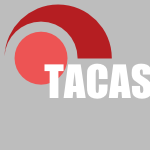 TACAS-2007-HerbreteauST #concurrent
TACAS-2007-HerbreteauST #concurrent- Unfolding Concurrent Well-Structured Transition Systems (FH, GS, TQT), pp. 706–720.
 ICALP-2007-KontogiannisS #algorithm #approximate #constant #game studies #performance
ICALP-2007-KontogiannisS #algorithm #approximate #constant #game studies #performance- Efficient Algorithms for Constant Well Supported Approximate Equilibria in Bimatrix Games (SCK, PGS), pp. 595–606.
 ECIR-2007-SandersonS #documentation
ECIR-2007-SandersonS #documentation- Search of Spoken Documents Retrieves Well Recognized Transcripts (MS, XMS), pp. 505–516.
 SIGIR-2007-HuffmanH #how #predict #question
SIGIR-2007-HuffmanH #how #predict #question- How well does result relevance predict session satisfaction? (SBH, MH), pp. 567–574.
 SAC-2007-AhamedHSK #pervasive #using
SAC-2007-AhamedHSK #pervasive #using- Wellness assistant: a virtual wellness assistant using pervasive computing (SIA, MMH, KS, AJK), pp. 782–787.
 SAC-2007-Liebrock #analysis #integration #re-engineering
SAC-2007-Liebrock #analysis #integration #re-engineering- Integration of well posedness analysis in software engineering (LML), pp. 1479–1483.
 SAC-2007-ThierryMS #constraints #geometry #towards
SAC-2007-ThierryMS #constraints #geometry #towards- Towards an homogeneous handling of under-constrained and well-constrained systems of geometric constraints (SEBT, PM, PS), pp. 773–777.
 CSL-2007-AbdullaDB #power of
CSL-2007-AbdullaDB #power of- Comparing the Expressive Power of Well-Structured Transition Systems (PAA, GD, LVB), pp. 99–114.
 FASE-2006-WestphalT #sequence chart
FASE-2006-WestphalT #sequence chart- The Good, the Bad and the Ugly: Well-Formedness of Live Sequence Charts (BW, TT), pp. 230–246.
 DLT-2006-DAlessandroRV #finite #order #set
DLT-2006-DAlessandroRV #finite #order #set- Well Quasi Orders and the Shuffle Closure of Finite Sets (FD, GR, SV), pp. 260–269.
 DLT-2006-KountouriotisNR #boolean grammar #semantics
DLT-2006-KountouriotisNR #boolean grammar #semantics- Well-Founded Semantics for Boolean Grammars (VK, CN, PR), pp. 203–214.
 CHI-2006-ShklovskiKC #internet
CHI-2006-ShklovskiKC #internet- Routine patterns of internet use & psychological well-being: coping with a residential move (IS, REK, JNC), pp. 969–978.
 KR-2006-CabalarOP #logic #semantics
KR-2006-CabalarOP #logic #semantics- Logical Foundations of Well-Founded Semantics (PC, SPO, DP), pp. 25–35.
 GPCE-2006-CzarneckiP #constraints #ocl #verification
GPCE-2006-CzarneckiP #constraints #ocl #verification- Verifying feature-based model templates against well-formedness OCL constraints (KC, KP), pp. 211–220.
 POPL-2006-LahiriQ #verification
POPL-2006-LahiriQ #verification- Verifying properties of well-founded linked lists (SKL, SQ), pp. 115–126.
 ATEM-2006-Garcia #formal method #ocl #uml
ATEM-2006-Garcia #formal method #ocl #uml- Formalizing the Well-Formedness Rules of EJB3QL in UML + OCL (MG), pp. 66–75.
 ICLP-2006-CabalarOPV #equilibrium #logic #semantics #using
ICLP-2006-CabalarOPV #equilibrium #logic #semantics #using- Analysing and Extending Well-Founded and Partial Stable Semantics Using Partial Equilibrium Logic (PC, SPO, DP, AV), pp. 346–360.
 ICLP-2006-WittocxVMDB #semantics
ICLP-2006-WittocxVMDB #semantics- Predicate Introduction Under Stable and Well-Founded Semantics (JW, JV, MM, MD, MB), pp. 242–256.
 VMCAI-2006-BozzelliTP #communication #recursion #state machine #verification
VMCAI-2006-BozzelliTP #communication #recursion #state machine #verification- Verification of Well-Formed Communicating Recursive State Machines (LB, SLT, AP), pp. 412–426.
 PODS-2005-Vansummeren #xquery
PODS-2005-Vansummeren #xquery- Deciding well-definedness of XQuery fragments (SV), pp. 37–48.
 TACAS-2005-PnueliPR #analysis
TACAS-2005-PnueliPR #analysis- Separating Fairness and Well-Foundedness for the Analysis of Fair Discrete Systems (AP, AP, AR), pp. 124–139.
 SAS-2005-BruynoogheGH #analysis #logic programming #source code #termination
SAS-2005-BruynoogheGH #analysis #logic programming #source code #termination- Inference of Well-Typings for Logic Programs with Application to Termination Analysis (MB, JPG, WVH), pp. 35–51.
 STOC-2005-ChekuriKS #multi #problem
STOC-2005-ChekuriKS #multi #problem- Multicommodity flow, well-linked terminals, and routing problems (CC, SK, FBS), pp. 183–192.
 ICALP-2005-AtseriasDG #finite
ICALP-2005-AtseriasDG #finite- Preservation Under Extensions on Well-Behaved Finite Structures (AA, AD, MG), pp. 1437–1449.
 ICALP-2005-BorodinCM #algorithm #how #question
ICALP-2005-BorodinCM #algorithm #how #question- How Well Can Primal-Dual and Local-Ratio Algorithms Perform? (AB, DC, AM), pp. 943–955.
 SAC-2005-MonemizadehS #multi #network #scalability
SAC-2005-MonemizadehS #multi #network #scalability- The necklace-hypercube: a well scalable hypercube-based interconnection network for multiprocessors (MM, HSA), pp. 729–733.
 CADE-2005-LevyNV #unification
CADE-2005-LevyNV #unification- Well-Nested Context Unification (JL, JN, MV), pp. 149–163.
 ICLP-2005-AlcantaraDP #semantics
ICLP-2005-AlcantaraDP #semantics- A Well-Founded Semantics with Disjunction (JA, CVD, LMP), pp. 341–355.
 ICLP-2005-NomikosRW #equivalence #semantics
ICLP-2005-NomikosRW #equivalence #semantics- A Sufficient Condition for Strong Equivalence Under the Well-Founded Semantics (CN, PR, WWW), pp. 414–415.
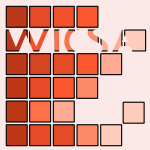 WICSA-2004-BernardoB #architecture #generative #parallel #source code #thread
WICSA-2004-BernardoB #architecture #generative #parallel #source code #thread- Generating Well-Synchronized Multithreaded Programs from Software Architecture Descriptions (MB, EB), pp. 167–176.
 DATE-v1-2004-ChenG #adaptation #bias #low cost #performance #power management #reduction
DATE-v1-2004-ChenG #adaptation #bias #low cost #performance #power management #reduction- A Low Cost Individual-Well Adaptive Body Bias (IWABB) Scheme for Leakage Power Reduction and Performance Enhancement in the Presence of Intra-Die Variations (TWC, JG), pp. 240–245.
 HT-2004-HorieY #analysis #documentation #set #using #web
HT-2004-HorieY #analysis #documentation #set #using #web- Structural analysis for web documentation using the non-well-founded set (IH, KY), pp. 42–43.
 ITiCSE-WGR-2004-LeBlancD #education #why
ITiCSE-WGR-2004-LeBlancD #education #why- Bioinformatics and computing curricula 2001: why computer science is well positioned in a post-genomic world (MDL, BDD), pp. 64–68.
 DLT-2004-DAlessandroV #set
DLT-2004-DAlessandroV #set- Avoidable Sets and Well Quasi-Orders (FD, SV), pp. 139–150.
 ICALP-2004-HooryMMR #permutation
ICALP-2004-HooryMMR #permutation- Simple Permutations Mix Well (SH, AM, SM, CR), pp. 770–781.
 ICALP-2004-Kunc
ICALP-2004-Kunc- Regular Solutions of Language Inequalities and Well Quasi-orders (MK), pp. 870–881.
 CAiSE-2004-GuizzardiWGMR #concept #modelling #uml
CAiSE-2004-GuizzardiWGMR #concept #modelling #uml- An Ontologically Well-Founded Profile for UML Conceptual Models (GG, GW, NG, MvS), pp. 112–126.
 POPL-2004-Dreyer #recursion #type system
POPL-2004-Dreyer #recursion #type system- A type system for well-founded recursion (DD), pp. 293–305.
 DocEng-2003-BagleyBH #component #reuse #sequence
DocEng-2003-BagleyBH #component #reuse #sequence- Creating reusable well-structured PDF as a sequence of component object graphic (COG) elements (SRB, DFB, MRBH), pp. 58–67.
 ICSM-2003-Beele
ICSM-2003-Beele- Some wells never dry (JJvB), p. 465.
 STOC-2003-GaoZ #composition #graph #metric
STOC-2003-GaoZ #composition #graph #metric- Well-separated pair decomposition for the unit-disk graph metric and its applications (JG, LZ), pp. 483–492.
 DLT-2003-DAlessandroV #on the
DLT-2003-DAlessandroV #on the- On Well Quasi-orders on Languages (FD, SV), pp. 230–241.
 SEFM-2003-AstesianoR #development #towards #uml
SEFM-2003-AstesianoR #development #towards #uml- Towards a Well-Founded UML-Based Development Method (EA, GR), p. 102–?.
 HPCA-2003-HoP #communication #design #performance
HPCA-2003-HoP #communication #design #performance- A Methodology for Designing Efficient On-Chip Interconnects on Well-Behaved Communication Patterns (WHH, TMP), pp. 377–388.
 TLCA-2003-Kahrs #source code
TLCA-2003-Kahrs #source code- Well-Going Programs Can Be Typed (SK), pp. 167–179.
 FLOPS-2002-LoyerS #logic programming #nondeterminism #semantics #source code
FLOPS-2002-LoyerS #logic programming #nondeterminism #semantics #source code- The Well-Founded Semantics in Normal Logic Programs with Uncertainty (YL, US), pp. 152–166.
 CADE-2002-BofillR #order
CADE-2002-BofillR #order- Well-Foundedness Is Sufficient for Completeness of Ordered Paramodulation (MB, AR), pp. 456–470.
 ICLP-2002-Cabalar #semantics
ICLP-2002-Cabalar #semantics- A Rewriting Method for Well-Founded Semantics with Explicit Negation (PC), pp. 378–392.
 WCRE-2001-Huet #database #empirical #reverse engineering
WCRE-2001-Huet #database #empirical #reverse engineering- From an Informal Textual Lexicon to a Well-Structured Lexical Database: An Experiment in Data Reverse Engineering (GPH), pp. 127–135.
 FLOPS-2001-DeransartS #logic programming #source code
FLOPS-2001-DeransartS #logic programming #source code- Well-Typed Logic Programs Are not Wrong (PD, JGS), pp. 280–295.
 PPDP-2001-BossiCR #logic programming #source code #termination
PPDP-2001-BossiCR #logic programming #source code #termination- Termination of Well-Typed Logic Programs (AB, NC, SR), pp. 73–81.
 SOSP-2001-WelshCB #architecture #internet #named #scalability
SOSP-2001-WelshCB #architecture #internet #named #scalability- SEDA: An Architecture for Well-Conditioned, Scalable Internet Services (MW, DEC, EAB), pp. 230–243.
 CSL-2001-Goubault-Larrecq #recursion
CSL-2001-Goubault-Larrecq #recursion- Well-Founded Recursive Relations (JGL), pp. 484–497.
 ICLP-2001-DeneckerPB #logic programming #semantics #source code
ICLP-2001-DeneckerPB #logic programming #semantics #source code- Ultimate Well-Founded and Stable Semantics for Logic Programs with Aggregates (MD, NP, MB), pp. 212–226.
 IJCAR-2001-Wang #semantics #top-down
IJCAR-2001-Wang #semantics #top-down- A Top-Down Procedure for Disjunctive Well-Founded Semantics (KW), pp. 305–317.
 ITiCSE-2000-DavyABJ #student
ITiCSE-2000-DavyABJ #student- Student well-being in a computing department (JRD, KA, MB, CJ), pp. 136–139.
 CL-2000-LeuschelL #deduction #petri net
CL-2000-LeuschelL #deduction #petri net- Coverability of Reset Petri Nets and Other Well-Structured Transition Systems by Partial Deduction (ML, HL), pp. 101–115.
 CL-2000-LoncT #on the #problem #semantics
CL-2000-LoncT #on the #problem #semantics- On the Problem of Computing the Well-Founded Semantics (ZL, MT), pp. 673–687.
 LICS-2000-AbdullaN #infinity #performance #verification
LICS-2000-AbdullaN #infinity #performance #verification- Better is Better than Well: On Efficient Verification of Infinite-State Systems (PAA, AN), pp. 132–140.
 HCI-EI-1999-LeinoRH #problem #usability
HCI-EI-1999-LeinoRH #problem #usability- Computer Usability Problems and Psychological Well-being (TL, TR, PH), pp. 11–14.
 HCI-EI-1999-Seppala #experience
HCI-EI-1999-Seppala #experience- Factors Associated with the Experience of Stress and Well-Being in Computer-Based Office Work (PKS), pp. 178–183.
 CAV-1999-ManoliosNS #bisimulation #model checking #proving #theorem proving
CAV-1999-ManoliosNS #bisimulation #model checking #proving #theorem proving- Linking Theorem Proving and Model-Checking with Well-Founded Bisimulation (PM, KSN, RS), pp. 369–379.
 CSL-1999-HagiharaY #logic
CSL-1999-HagiharaY #logic- Resolution Method for Modal Logic with Well-Founded Frames (SH, NY), pp. 277–291.
 ICLP-1999-AlferesPS #abduction #source code
ICLP-1999-AlferesPS #abduction #source code- Well-founded Abduction via Tabled Dual Programs (JJA, LMP, TS), pp. 426–440.
 ICLP-1999-ZukowskiF #semantics
ICLP-1999-ZukowskiF #semantics- Well-founded Semantics by Transformation: The Non-ground Case (UZ, BF), pp. 456–470.
 TLCA-1999-Berardid
TLCA-1999-Berardid- Total Functionals and Well-Founded Strategies (SB, Ud), pp. 54–68.
 ICML-1998-Gordon
ICML-1998-Gordon- Well-Behaved Borgs, Bolos, and Berserkers (DFG), pp. 224–232.
 KR-1998-BrassDNP #comparison #implementation #semantics
KR-1998-BrassDNP #comparison #implementation #semantics- A Comparison of the Static and the Disjunctive Well-Founded Semantics and its Implementation (SB, JD, IN, TCP), pp. 74–85.
 ICDAR-1997-LankB #documentation #information management #n-gram #named #recognition #representation #visual notation
ICDAR-1997-LankB #documentation #information management #n-gram #named #recognition #representation #visual notation- N-grams: a well-structured knowledge representation for recognition of graphical documents (EL, DB), pp. 801–804.
 DLT-1997-Ilie #order #word
DLT-1997-Ilie #order #word- Remarks on Well Quasi Orders of Words (LI), pp. 399–409.
 HCI-CC-1997-LindstromLS #implementation
HCI-CC-1997-LindstromLS #implementation- Organizational Support and Employee Well-Being in the Implementation of New VDT Application (KL, TL, JS), pp. 373–377.
 ICLP-1997-ZukowskiF #bottom-up #difference #semantics
ICLP-1997-ZukowskiF #bottom-up #difference #semantics- Differential Bottom-Up Computation of the Well-Founded Semantics (UZ, BF, SB), p. 421.
 ILPS-1997-DixO #on the #semantics
ILPS-1997-DixO #on the #semantics- On Well-Behaved Semantics Suitable for Aggregation (JD, MO), p. 405.
 RTA-1997-McCune #problem
RTA-1997-McCune #problem- Well-Behaved Search and the Robbins Problem (WM), pp. 1–7.
 TRI-Ada-1996-Moody #ada #architecture #case study #experience #migration #reuse
TRI-Ada-1996-Moody #ada #architecture #case study #experience #migration #reuse- Migrating Well Engineered Ada 83 Applications into Newer Architecture and Reuse Based Ada 95 Systems: Experiences from Boeing’s Reuse Initiative Project (SAM), pp. 219–229.
 KR-1996-Morgenstern #network #semantics
KR-1996-Morgenstern #network #semantics- Inheriting Well-formed Formulae in a Formula-Agumented Semantic Network (LM), pp. 268–279.
 JICSLP-1996-ChoU #concurrent #logic programming #source code
JICSLP-1996-ChoU #concurrent #logic programming #source code- Diagnosing Non-Well-Moded Concurrent Logic Programs (KC, KU), pp. 215–229.
 JICSLP-1996-NiemelaS #implementation #performance #semantics
JICSLP-1996-NiemelaS #implementation #performance #semantics- Efficient Implementation of the Well-founded and Stable Model Semantics (IN, PS), pp. 289–303.
 JICSLP-1996-SagonasSW #automaton #semantics
JICSLP-1996-SagonasSW #automaton #semantics- An Abstract Machine for Computing the Well-Founded Semantics (KFS, TS, DSW), pp. 274–288.
 SAS-1995-RaoS #execution #prolog #source code
SAS-1995-RaoS #execution #prolog #source code- Unification-Free Execution of Well-Moded and Well-Typed Prolog Programs (MRKKR, RKS), pp. 243–260.
 SEKE-1994-VestliNS #knowledge-based
SEKE-1994-VestliNS #knowledge-based- Developing well-structured knowledge-based systems (MV, IN, AS), pp. 366–373.
 PODS-1993-ChenW #evaluation #query #semantics
PODS-1993-ChenW #evaluation #query #semantics- Query Evaluation under the Well Founded Semantics (WC, DSW), pp. 168–179.
 ILPS-1993-BolD #semantics
ILPS-1993-BolD #semantics- Tabulated Resolution for Well Founded Semantics (RNB, LD), pp. 199–219.
 ILPS-1993-ChenSW #evaluation
ILPS-1993-ChenSW #evaluation- Goal-Directed Evaluation of Well-Founded Sematics for XSB (WC, TS, DSW), p. 679.
 ILPS-1993-SudarshanSRB #semantics
ILPS-1993-SudarshanSRB #semantics- Extending the Well-Founded and Valid Semantics for Aggregation (SS, DS, RR, CB), pp. 590–608.
 PODS-1992-Gelder #semantics
PODS-1992-Gelder #semantics- The Well-Founded Semantics of Aggregation (AVG), pp. 127–138.
 CSCW-1992-OlsonOSC #design #how
CSCW-1992-OlsonOSC #design #how- How a Group-Editor Changes the Character of a Design Meeting as well as Its Outcome (JSO, GMO, MS, MRC), pp. 91–98.
 ALP-1992-AravindanD #deduction #logic programming #semantics #source code
ALP-1992-AravindanD #deduction #logic programming #semantics #source code- Partial Deduction of Logic Programs wrt Well-Founded Semantics (CA, PMD), pp. 384–402.
 JICSLP-1992-ChenW #approach #semantics
JICSLP-1992-ChenW #approach #semantics- A Goal-Oriented Approach to Computing Well Founded Semantics (WC, DSW), pp. 589–603.
 ICLP-1991-HuY #logic programming #semantics #source code
ICLP-1991-HuY #logic programming #semantics #source code- Extended Well-Founded Model Semantics for General Logic Programs (YH, LYY), pp. 412–425.
 ICLP-1991-PereiraAA #reasoning #semantics
ICLP-1991-PereiraAA #reasoning #semantics- Nonmonotonic Reasoning with Well Founded Semantics (LMP, JNA, JJA), pp. 475–489.
 ICLP-1991-Przymusinski #logic programming #source code
ICLP-1991-Przymusinski #logic programming #source code- Well-Founded Completions of Logic Programs (TCP), pp. 726–741.
 ISLP-1991-Fitting #semantics
ISLP-1991-Fitting #semantics- Well-Founded Semantics, Generalized (MF), pp. 71–84.
 ISLP-1991-KempSS #bottom-up #evaluation #modelling #set
ISLP-1991-KempSS #bottom-up #evaluation #modelling #set- Magic Sets and Bottom-Up Evaluation of Well-Founded Models (DBK, DS, PJS), pp. 337–351.
 CADE-1990-BaralLM #logic programming #semantics #source code
CADE-1990-BaralLM #logic programming #semantics #source code- Generalized Well-founded Semantics for Logic Programs (Extended Abstract) (CB, JL, JM), pp. 102–116.
 CLP-1990-Fages90 #fixpoint #logic programming #semantics #source code
CLP-1990-Fages90 #fixpoint #logic programming #semantics #source code- A New Fixpoint Semantics for General Logic Programs Compared with the Well-Founded and the Stable Model Semantics (FF), pp. 441–458.
 LICS-1990-Lescanne #order
LICS-1990-Lescanne #order- Well Rewrite Orderings (PL), pp. 249–256.
 PODS-1989-Ross #logic programming #semantics #source code
PODS-1989-Ross #logic programming #semantics #source code- A Procedural Semantics for Well Founded Negation in Logic Programs (KAR), pp. 22–33.
 KR-1989-Zadrozny #order #set
KR-1989-Zadrozny #order #set- Cardinalities and Well Orderings in a Common-Sense Set Theory (WZ), pp. 486–497.
 ML-1989-Gaines #data-driven #database #empirical #induction #statistics #trade-off
ML-1989-Gaines #data-driven #database #empirical #induction #statistics #trade-off- An Ounce of Knowledge is Worth a Ton of Data: Quantitative studies of the Trade-Off between Expertise and Data Based On Statistically Well-Founded Empirical Induction (BRG), pp. 156–159.
 LICS-1989-Fernando #on the #recursion #set
LICS-1989-Fernando #on the #recursion #set- On Substitutional Recursion Over Non-Well-Founded Sets (RTPF), pp. 273–282.
 LICS-1989-MisloveMO #fixpoint #set
LICS-1989-MisloveMO #fixpoint #set- Non-Well-Founded Sets Obtained from Ideal Fixed Points (MWM, LSM, FJO), pp. 263–272.
 PODS-1988-GelderRS #logic programming #semantics #set #source code
PODS-1988-GelderRS #logic programming #semantics #set #source code- Unfounded Sets and Well-Founded Semantics for General Logic Programs (AVG, KAR, JSS), pp. 221–230.
 ICALP-1987-Finkel
ICALP-1987-Finkel- A Generalization of the Procedure of Karp and Miller to Well Structured Transition Systems (AF), pp. 499–508.
 PODS-1986-Su #safety
PODS-1986-Su #safety- Safety of Non-Well-Locked Trasnaction Systems (JS), pp. 47–52.
 VLDB-1983-Verroust #database #semantics
VLDB-1983-Verroust #database #semantics- Characterization of Well-Behaved Database Schemata and Their Update Semantics (AV), pp. 312–321.
 ICSE-1979-BrackettEHT
ICSE-1979-BrackettEHT- An Environment for Producing Well-Engineered Microcomputer Software (JWB, RSE, CKH, RT), pp. 386–398.
 DATE-2015-BortolottiMBRSB #monitoring #power management
DATE-2015-BortolottiMBRSB #monitoring #power management PODS-2015-BarceloPS #approximate #evaluation #performance
PODS-2015-BarceloPS #approximate #evaluation #performance ESOP-2015-FetscherCPHF #automation #generative #random #type system
ESOP-2015-FetscherCPHF #automation #generative #random #type system STOC-2015-HalldorssonT #graph #how #question
STOC-2015-HalldorssonT #graph #how #question CSCW-2015-IslamP #network #social
CSCW-2015-IslamP #network #social CSCW-2015-Pierson
CSCW-2015-Pierson MoDELS-J-2011-Steimann15 #refactoring
MoDELS-J-2011-Steimann15 #refactoring MoDELS-J-2011-Steimann15 #refactoring
MoDELS-J-2011-Steimann15 #refactoring SAC-2015-LoffRM #predict #social #social media
SAC-2015-LoffRM #predict #social #social media SAC-2015-LopezR #analysis #metaprogramming
SAC-2015-LopezR #analysis #metaprogramming CSL-2015-Berardi #comprehension #higher-order #induction
CSL-2015-Berardi #comprehension #higher-order #induction TLCA-2015-Pientka0 #recursion
TLCA-2015-Pientka0 #recursion DRR-2014-LundRW #fault #how #multi #question
DRR-2014-LundRW #fault #how #multi #question PODS-2014-PichlerS #equivalence
PODS-2014-PichlerS #equivalence STOC-2014-LiNW #algorithm #linear #sketching #streaming
STOC-2014-LiNW #algorithm #linear #sketching #streaming FLOPS-2014-CaiO #automaton
FLOPS-2014-CaiO #automaton DLT-2014-ReynierT #automaton #transducer
DLT-2014-ReynierT #automaton #transducer FM-2014-HayesM #algebra #invariant #realtime
FM-2014-HayesM #algebra #invariant #realtime SEFM-2014-MotaFDW #agile #model checking #prototype #semantics
SEFM-2014-MotaFDW #agile #model checking #prototype #semantics CHI-2014-BrownAG #design #health #self #women
CHI-2014-BrownAG #design #health #self #women CSCW-2014-RatanH #design #game studies
CSCW-2014-RatanH #design #game studies KR-2014-DeneckerV #induction #principle #revisited #semantics
KR-2014-DeneckerV #induction #principle #revisited #semantics LOPSTR-2014-ChowdhuryLCKY #approximate #case study #logic programming #polynomial #semantics #source code
LOPSTR-2014-ChowdhuryLCKY #approximate #case study #logic programming #polynomial #semantics #source code PPoPP-2014-HerlihyL #locality
PPoPP-2014-HerlihyL #locality ICLP-J-2014-TachmazidisAF #big data #performance #semantics
ICLP-J-2014-TachmazidisAF #big data #performance #semantics ICTSS-2014-Schmidberger #metric
ICTSS-2014-Schmidberger #metric RTA-TLCA-2014-BerardiS #theorem
RTA-TLCA-2014-BerardiS #theorem CASE-2013-WilsonM #design #estimation #parametricity
CASE-2013-WilsonM #design #estimation #parametricity PODS-2013-HernichKLG #datalog #ontology #reasoning #semantics
PODS-2013-HernichKLG #datalog #ontology #reasoning #semantics ESOP-2013-JeanninKS
ESOP-2013-JeanninKS STOC-2013-Ta-Shma #matrix #quantum
STOC-2013-Ta-Shma #matrix #quantum GT-VMT-2013-MantzTL #co-evolution #migration
GT-VMT-2013-MantzTL #co-evolution #migration CHI-2013-IsaacsKWLHW #how
CHI-2013-IsaacsKWLHW #how DHM-SET-2013-BaptistaSVQCD #interactive #using
DHM-SET-2013-BaptistaSVQCD #interactive #using DUXU-NTE-2013-SannaVBBR #approach #behaviour #design
DUXU-NTE-2013-SannaVBBR #approach #behaviour #design DUXU-NTE-2013-ViciniBRS #behaviour
DUXU-NTE-2013-ViciniBRS #behaviour DUXU-PMT-2013-RaisonS #agile #approach #design
DUXU-PMT-2013-RaisonS #agile #approach #design OCSC-2013-HallCW #approach #community #predict
OCSC-2013-HallCW #approach #community #predict EDOC-2013-AzevedoIASPG #modelling #ontology
EDOC-2013-AzevedoIASPG #modelling #ontology ICML-c3-2013-ZhuLM #algorithm #clustering
ICML-c3-2013-ZhuLM #algorithm #clustering MoDELS-2013-FaunesCBSC #automation #metamodelling
MoDELS-2013-FaunesCBSC #automation #metamodelling MoDELS-2013-SemerathHV #constraints #domain-specific language #graph #query #validation
MoDELS-2013-SemerathHV #constraints #domain-specific language #graph #query #validation MoDELS-2013-FaunesCBSC #automation #metamodelling
MoDELS-2013-FaunesCBSC #automation #metamodelling MoDELS-2013-SemerathHV #constraints #domain-specific language #graph #query #validation
MoDELS-2013-SemerathHV #constraints #domain-specific language #graph #query #validation LICS-2013-BalbianiHT #logic
LICS-2013-BalbianiHT #logic CBSE-2012-KarolBA #attribute grammar #composition #towards
CBSE-2012-KarolBA #attribute grammar #composition #towards FoSSaCS-2012-AdamekMMS #algebra
FoSSaCS-2012-AdamekMMS #algebra PEPM-2012-Lopez-FraguasMR #functional #logic programming
PEPM-2012-Lopez-FraguasMR #functional #logic programming SFM-2012-Selic #uml
SFM-2012-Selic #uml ICGT-2012-KonigS #graph transformation
ICGT-2012-KonigS #graph transformation SLE-2012-KaminskiW #analysis #attribute grammar #composition
SLE-2012-KaminskiW #analysis #attribute grammar #composition ICLP-2012-YouMB #semantics #source code
ICLP-2012-YouMB #semantics #source code ISSTA-2012-CoughlinCDS #source code #what
ISSTA-2012-CoughlinCDS #source code #what VMCAI-2012-ZuffereyWH #abstraction
VMCAI-2012-ZuffereyWH #abstraction ASE-2011-HidakaHIKN #bidirectional #framework #model transformation #named
ASE-2011-HidakaHIKN #bidirectional #framework #model transformation #named CSEET-2011-BromanS #how #question #re-engineering #student
CSEET-2011-BromanS #how #question #re-engineering #student FoSSaCS-2011-BonnetFHR
FoSSaCS-2011-BonnetFHR AFL-2011-IvanM #context-free grammar #generative #word
AFL-2011-IvanM #context-free grammar #generative #word LATA-2011-PolicritiT #finite #set
LATA-2011-PolicritiT #finite #set CHI-2011-ChenNC #online #recommendation #social
CHI-2011-ChenNC #online #recommendation #social HCI-UA-2011-Loiacono-MelloDTP #case study #generative #why
HCI-UA-2011-Loiacono-MelloDTP #case study #generative #why ICEIS-J-2011-PereiraBOM #consistency #process #set
ICEIS-J-2011-PereiraBOM #consistency #process #set KEOD-2011-SeppalaN #analysis #modelling
KEOD-2011-SeppalaN #analysis #modelling PPDP-2011-SchernhammerM #axiom #incremental #recursion #specification
PPDP-2011-SchernhammerM #axiom #incremental #recursion #specification POPL-2011-SmaragdakisBL #comprehension
POPL-2011-SmaragdakisBL #comprehension SAC-2011-Zhang #analysis #constraints #geometry #graph #problem
SAC-2011-Zhang #analysis #constraints #geometry #graph #problem STOC-2010-MagniezMN #streaming
STOC-2010-MagniezMN #streaming DLT-2010-OttoPM #automaton #on the
DLT-2010-OttoPM #automaton #on the LATA-2010-KanazawaS #context-free grammar #multi #power of
LATA-2010-KanazawaS #context-free grammar #multi #power of CHI-2010-BurkeML #network #process #social
CHI-2010-BurkeML #network #process #social SAC-2010-ChoppyR #approach #modelling
SAC-2010-ChoppyR #approach #modelling ESOP-2009-WadlerF #source code
ESOP-2009-WadlerF #source code DLT-2009-Kanazawa #context-free grammar #multi
DLT-2009-Kanazawa #context-free grammar #multi CHI-2009-MaC #communication #how #question #visual notation
CHI-2009-MaC #communication #how #question #visual notation ICML-2009-FarhangfarGS #image #learning
ICML-2009-FarhangfarGS #image #learning ICLP-2009-Swift #modelling
ICLP-2009-Swift #modelling RTA-2009-Zantema #termination
RTA-2009-Zantema #termination HT-2008-ShiBAG
HT-2008-ShiBAG ICPC-2008-FeilkasR #api #constraints
ICPC-2008-FeilkasR #api #constraints DLT-2008-DAlessandroV #formal method
DLT-2008-DAlessandroV #formal method FM-2008-RudichDM #specification
FM-2008-RudichDM #specification CSCW-2008-GrimesBBG #community #named
CSCW-2008-GrimesBBG #community #named SEKE-2008-PereiraBO #process
SEKE-2008-PereiraBO #process SEKE-2008-TubiioLR #bibliography #elicitation #perspective
SEKE-2008-TubiioLR #bibliography #elicitation #perspective LOPSTR-2008-SchrijversBG #polymorphism
LOPSTR-2008-SchrijversBG #polymorphism ICLP-2008-Riguzzi #logic programming #semantics #source code
ICLP-2008-Riguzzi #logic programming #semantics #source code IJCAR-2008-DarvasMR #performance
IJCAR-2008-DarvasMR #performance SAT-2008-GeorgiouP #algorithm #complexity #satisfiability
SAT-2008-GeorgiouP #algorithm #complexity #satisfiability TACAS-2007-HerbreteauST #concurrent
TACAS-2007-HerbreteauST #concurrent ICALP-2007-KontogiannisS #algorithm #approximate #constant #game studies #performance
ICALP-2007-KontogiannisS #algorithm #approximate #constant #game studies #performance ECIR-2007-SandersonS #documentation
ECIR-2007-SandersonS #documentation SIGIR-2007-HuffmanH #how #predict #question
SIGIR-2007-HuffmanH #how #predict #question SAC-2007-AhamedHSK #pervasive #using
SAC-2007-AhamedHSK #pervasive #using SAC-2007-Liebrock #analysis #integration #re-engineering
SAC-2007-Liebrock #analysis #integration #re-engineering SAC-2007-ThierryMS #constraints #geometry #towards
SAC-2007-ThierryMS #constraints #geometry #towards CSL-2007-AbdullaDB #power of
CSL-2007-AbdullaDB #power of FASE-2006-WestphalT #sequence chart
FASE-2006-WestphalT #sequence chart DLT-2006-DAlessandroRV #finite #order #set
DLT-2006-DAlessandroRV #finite #order #set DLT-2006-KountouriotisNR #boolean grammar #semantics
DLT-2006-KountouriotisNR #boolean grammar #semantics CHI-2006-ShklovskiKC #internet
CHI-2006-ShklovskiKC #internet KR-2006-CabalarOP #logic #semantics
KR-2006-CabalarOP #logic #semantics GPCE-2006-CzarneckiP #constraints #ocl #verification
GPCE-2006-CzarneckiP #constraints #ocl #verification POPL-2006-LahiriQ #verification
POPL-2006-LahiriQ #verification ATEM-2006-Garcia #formal method #ocl #uml
ATEM-2006-Garcia #formal method #ocl #uml ICLP-2006-CabalarOPV #equilibrium #logic #semantics #using
ICLP-2006-CabalarOPV #equilibrium #logic #semantics #using ICLP-2006-WittocxVMDB #semantics
ICLP-2006-WittocxVMDB #semantics VMCAI-2006-BozzelliTP #communication #recursion #state machine #verification
VMCAI-2006-BozzelliTP #communication #recursion #state machine #verification PODS-2005-Vansummeren #xquery
PODS-2005-Vansummeren #xquery TACAS-2005-PnueliPR #analysis
TACAS-2005-PnueliPR #analysis SAS-2005-BruynoogheGH #analysis #logic programming #source code #termination
SAS-2005-BruynoogheGH #analysis #logic programming #source code #termination STOC-2005-ChekuriKS #multi #problem
STOC-2005-ChekuriKS #multi #problem ICALP-2005-AtseriasDG #finite
ICALP-2005-AtseriasDG #finite ICALP-2005-BorodinCM #algorithm #how #question
ICALP-2005-BorodinCM #algorithm #how #question SAC-2005-MonemizadehS #multi #network #scalability
SAC-2005-MonemizadehS #multi #network #scalability CADE-2005-LevyNV #unification
CADE-2005-LevyNV #unification ICLP-2005-AlcantaraDP #semantics
ICLP-2005-AlcantaraDP #semantics ICLP-2005-NomikosRW #equivalence #semantics
ICLP-2005-NomikosRW #equivalence #semantics WICSA-2004-BernardoB #architecture #generative #parallel #source code #thread
WICSA-2004-BernardoB #architecture #generative #parallel #source code #thread DATE-v1-2004-ChenG #adaptation #bias #low cost #performance #power management #reduction
DATE-v1-2004-ChenG #adaptation #bias #low cost #performance #power management #reduction HT-2004-HorieY #analysis #documentation #set #using #web
HT-2004-HorieY #analysis #documentation #set #using #web ITiCSE-WGR-2004-LeBlancD #education #why
ITiCSE-WGR-2004-LeBlancD #education #why DLT-2004-DAlessandroV #set
DLT-2004-DAlessandroV #set ICALP-2004-HooryMMR #permutation
ICALP-2004-HooryMMR #permutation ICALP-2004-Kunc
ICALP-2004-Kunc CAiSE-2004-GuizzardiWGMR #concept #modelling #uml
CAiSE-2004-GuizzardiWGMR #concept #modelling #uml POPL-2004-Dreyer #recursion #type system
POPL-2004-Dreyer #recursion #type system DocEng-2003-BagleyBH #component #reuse #sequence
DocEng-2003-BagleyBH #component #reuse #sequence ICSM-2003-Beele
ICSM-2003-Beele STOC-2003-GaoZ #composition #graph #metric
STOC-2003-GaoZ #composition #graph #metric DLT-2003-DAlessandroV #on the
DLT-2003-DAlessandroV #on the SEFM-2003-AstesianoR #development #towards #uml
SEFM-2003-AstesianoR #development #towards #uml HPCA-2003-HoP #communication #design #performance
HPCA-2003-HoP #communication #design #performance TLCA-2003-Kahrs #source code
TLCA-2003-Kahrs #source code FLOPS-2002-LoyerS #logic programming #nondeterminism #semantics #source code
FLOPS-2002-LoyerS #logic programming #nondeterminism #semantics #source code CADE-2002-BofillR #order
CADE-2002-BofillR #order ICLP-2002-Cabalar #semantics
ICLP-2002-Cabalar #semantics WCRE-2001-Huet #database #empirical #reverse engineering
WCRE-2001-Huet #database #empirical #reverse engineering FLOPS-2001-DeransartS #logic programming #source code
FLOPS-2001-DeransartS #logic programming #source code PPDP-2001-BossiCR #logic programming #source code #termination
PPDP-2001-BossiCR #logic programming #source code #termination SOSP-2001-WelshCB #architecture #internet #named #scalability
SOSP-2001-WelshCB #architecture #internet #named #scalability CSL-2001-Goubault-Larrecq #recursion
CSL-2001-Goubault-Larrecq #recursion ICLP-2001-DeneckerPB #logic programming #semantics #source code
ICLP-2001-DeneckerPB #logic programming #semantics #source code IJCAR-2001-Wang #semantics #top-down
IJCAR-2001-Wang #semantics #top-down ITiCSE-2000-DavyABJ #student
ITiCSE-2000-DavyABJ #student CL-2000-LeuschelL #deduction #petri net
CL-2000-LeuschelL #deduction #petri net CL-2000-LoncT #on the #problem #semantics
CL-2000-LoncT #on the #problem #semantics LICS-2000-AbdullaN #infinity #performance #verification
LICS-2000-AbdullaN #infinity #performance #verification HCI-EI-1999-LeinoRH #problem #usability
HCI-EI-1999-LeinoRH #problem #usability HCI-EI-1999-Seppala #experience
HCI-EI-1999-Seppala #experience CAV-1999-ManoliosNS #bisimulation #model checking #proving #theorem proving
CAV-1999-ManoliosNS #bisimulation #model checking #proving #theorem proving CSL-1999-HagiharaY #logic
CSL-1999-HagiharaY #logic ICLP-1999-AlferesPS #abduction #source code
ICLP-1999-AlferesPS #abduction #source code ICLP-1999-ZukowskiF #semantics
ICLP-1999-ZukowskiF #semantics TLCA-1999-Berardid
TLCA-1999-Berardid ICML-1998-Gordon
ICML-1998-Gordon KR-1998-BrassDNP #comparison #implementation #semantics
KR-1998-BrassDNP #comparison #implementation #semantics ICDAR-1997-LankB #documentation #information management #n-gram #named #recognition #representation #visual notation
ICDAR-1997-LankB #documentation #information management #n-gram #named #recognition #representation #visual notation DLT-1997-Ilie #order #word
DLT-1997-Ilie #order #word HCI-CC-1997-LindstromLS #implementation
HCI-CC-1997-LindstromLS #implementation ICLP-1997-ZukowskiF #bottom-up #difference #semantics
ICLP-1997-ZukowskiF #bottom-up #difference #semantics ILPS-1997-DixO #on the #semantics
ILPS-1997-DixO #on the #semantics RTA-1997-McCune #problem
RTA-1997-McCune #problem TRI-Ada-1996-Moody #ada #architecture #case study #experience #migration #reuse
TRI-Ada-1996-Moody #ada #architecture #case study #experience #migration #reuse KR-1996-Morgenstern #network #semantics
KR-1996-Morgenstern #network #semantics JICSLP-1996-ChoU #concurrent #logic programming #source code
JICSLP-1996-ChoU #concurrent #logic programming #source code JICSLP-1996-NiemelaS #implementation #performance #semantics
JICSLP-1996-NiemelaS #implementation #performance #semantics JICSLP-1996-SagonasSW #automaton #semantics
JICSLP-1996-SagonasSW #automaton #semantics SAS-1995-RaoS #execution #prolog #source code
SAS-1995-RaoS #execution #prolog #source code SEKE-1994-VestliNS #knowledge-based
SEKE-1994-VestliNS #knowledge-based PODS-1993-ChenW #evaluation #query #semantics
PODS-1993-ChenW #evaluation #query #semantics ILPS-1993-BolD #semantics
ILPS-1993-BolD #semantics ILPS-1993-ChenSW #evaluation
ILPS-1993-ChenSW #evaluation ILPS-1993-SudarshanSRB #semantics
ILPS-1993-SudarshanSRB #semantics PODS-1992-Gelder #semantics
PODS-1992-Gelder #semantics CSCW-1992-OlsonOSC #design #how
CSCW-1992-OlsonOSC #design #how ALP-1992-AravindanD #deduction #logic programming #semantics #source code
ALP-1992-AravindanD #deduction #logic programming #semantics #source code JICSLP-1992-ChenW #approach #semantics
JICSLP-1992-ChenW #approach #semantics ICLP-1991-HuY #logic programming #semantics #source code
ICLP-1991-HuY #logic programming #semantics #source code ICLP-1991-PereiraAA #reasoning #semantics
ICLP-1991-PereiraAA #reasoning #semantics ICLP-1991-Przymusinski #logic programming #source code
ICLP-1991-Przymusinski #logic programming #source code ISLP-1991-Fitting #semantics
ISLP-1991-Fitting #semantics ISLP-1991-KempSS #bottom-up #evaluation #modelling #set
ISLP-1991-KempSS #bottom-up #evaluation #modelling #set CADE-1990-BaralLM #logic programming #semantics #source code
CADE-1990-BaralLM #logic programming #semantics #source code CLP-1990-Fages90 #fixpoint #logic programming #semantics #source code
CLP-1990-Fages90 #fixpoint #logic programming #semantics #source code LICS-1990-Lescanne #order
LICS-1990-Lescanne #order PODS-1989-Ross #logic programming #semantics #source code
PODS-1989-Ross #logic programming #semantics #source code KR-1989-Zadrozny #order #set
KR-1989-Zadrozny #order #set ML-1989-Gaines #data-driven #database #empirical #induction #statistics #trade-off
ML-1989-Gaines #data-driven #database #empirical #induction #statistics #trade-off LICS-1989-Fernando #on the #recursion #set
LICS-1989-Fernando #on the #recursion #set LICS-1989-MisloveMO #fixpoint #set
LICS-1989-MisloveMO #fixpoint #set PODS-1988-GelderRS #logic programming #semantics #set #source code
PODS-1988-GelderRS #logic programming #semantics #set #source code ICALP-1987-Finkel
ICALP-1987-Finkel PODS-1986-Su #safety
PODS-1986-Su #safety VLDB-1983-Verroust #database #semantics
VLDB-1983-Verroust #database #semantics ICSE-1979-BrackettEHT
ICSE-1979-BrackettEHT









